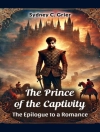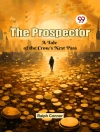In ‘Hereward, the Last of the English, ‘ Charles Kingsley weaves a compelling narrative set against the backdrop of the Norman Conquest in the 11th century. This historical novel employs a richly descriptive literary style, intertwining poetic language with vivid characterizations that bring to life the struggles of Hereward, an English hero who stands against foreign invasion. Kingsley’s work not only reflects the themes of nationalism and resistance but also evokes the romantic fascination with medieval history prevalent in Victorian literature, highlighting the tension between individual valor and the overarching forces of history. Charles Kingsley, a noted Victorian author, clergyman, and social reformer, was deeply influenced by the political and social issues of his time. His advocacy for justice and equality can be traced back to his experiences with the working classes, which shaped his vision of a heroic figure like Hereward. Kingsley’s scholarly interests in history and mythology further informed his portrayal of characters facing moral and existential dilemmas, establishing a connection between past and present societal struggles. This book is highly recommended for readers interested in historical fiction that reflects on themes of identity, resilience, and cultural heritage. Kingsley’s engaging prose invites both historical enthusiasm and critical contemplation, making it a significant read for anyone keen on exploring the nuances of English identity during a pivotal era.
عن المؤلف
Charles Kingsley (1819-1875) was a renowned English priest, university professor, historian, and novelist of the 19th century. He was a man of diverse interests and strongly influential in the literary and social spheres of his time. Kingsley’s novels are characterized by their didacticism and spirited advocacy of Christian Socialism, seeking to reconcile science and religion in the Victorian era. Notable among his works, Kingsley wrote ‘Hereward, the Last of the English’ also titled ‘Hereward the Wake’, which was published in 1866. This historical novel recounts the adventures of the Anglo-Saxon nobleman Hereward, a key figure in the resistance against the Norman Conquest. Kingsley’s narrative blends historical detail with romanticized fiction, contributing to the mythologizing of Hereward as a national hero. The author’s literary style often combines elements of romanticism with a fascination for nature and emphasis on social reform. Kingsley’s legacy includes such famous works as ‘Westward Ho!’ and ‘The Water-Babies: A Fairy Tale for a Land Baby’, with the latter becoming one of his most enduringly popular works, beloved for its blending of fantasy, morality, and Victorian-era concerns. A contemporary of Charles Darwin, Kingsley was also notable for his early support of Darwin’s theory of evolution. Kingsley’s impact extends beyond literature, as he was a key figure in the creation of Christian Socialism and an advocate for a more compassionate and egalitarian society.












